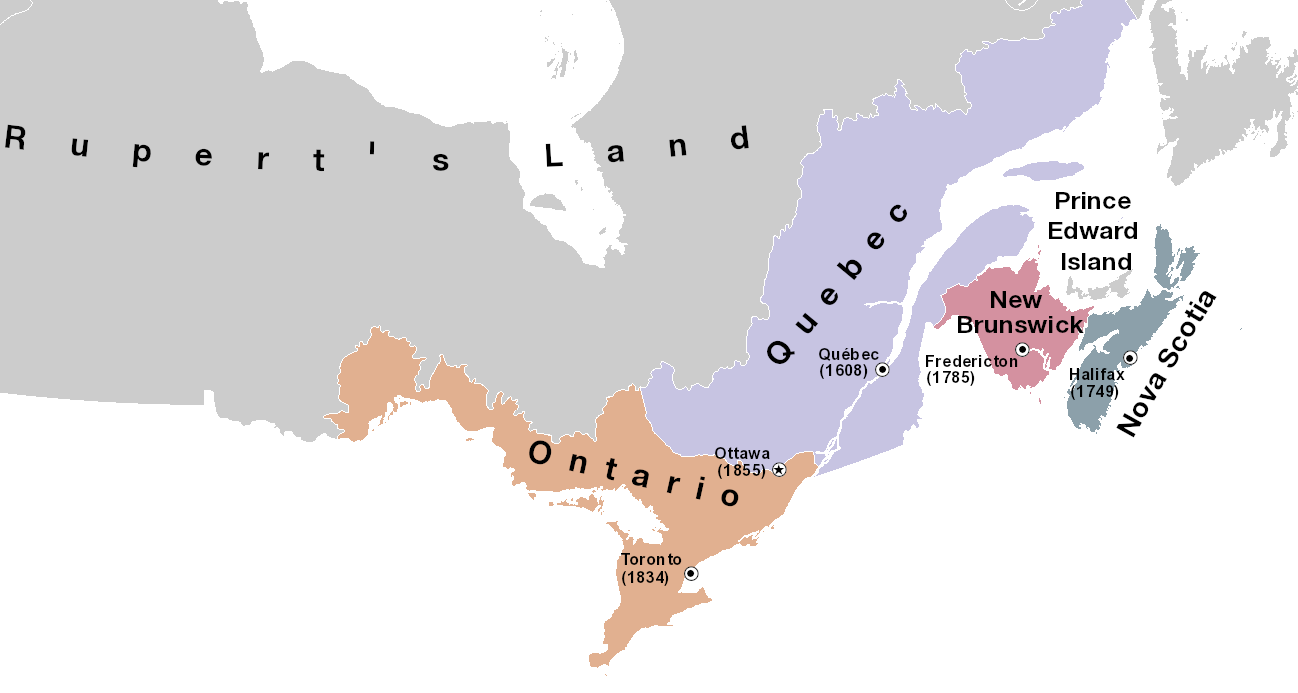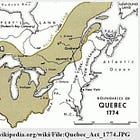I am not a True Scotsman (or “True Canadian”)
Online conversations regularly claim "not Canadian enough" rather than addressing or acknowledging the actual diversity of "Canadians".
I have recently started following substack blogs by someone using the handle Canadian Returnee. I have made several comments to their articles, which you can see in my notes, but I felt the following deserved a post.
While for different reasons, I am regularly told that I’m not Canadian enough to have views on Canada, or that I should leave if I disagree. This was long before I did a deep dive into the history of the Dominion of Canada, as it was called in my youth (rebranded in 1982 when I was 14).
I was born in Sudbury, and moved to Ottawa in 1987, and thus have always lived on land that is under the jurisdiction of the Governments of Canada. These cities are specifically in the the southern part of Ontario that was part of the British colony of Canada when the first British North America Act was passed in 1867 to create “The Dominion of Canada”. This southern part of Ontario and Quebec has a history that goes back to the French Colony of Canada.

I have ancestors that go back to the time before the Dominion of Canada, so it is not myself or ancestors that have people claiming that I’m not a true Canadian.
With primarily Scottish ancestors I’m not an “Old Stock” British or French colonists in the extreme hierarchies of Canada, but I am very Canadian.
When people say I’m not “Canadian” enough to be allowed to be critical of the systems of Canada, they are talking about my political and cultural views that don’t match a specific vision of Canada.
In some conversations you are claimed to not be “Canadian enough” if you have ever lived under the jurisdiction of any other government, and in other conversations it is because you don’t match specific beliefs.
It is pretty much always a form of the “No true Scotsman” logical fallacy.
No true Scotsman or appeal to purity is an informal fallacy in which one modifies a prior claim in response to a counterexample by asserting the counterexample is excluded by definition. Rather than admitting error or providing evidence to disprove the counterexample, the original claim is changed by using a non-substantive modifier such as "true", "pure", "genuine", "authentic", "real", or other similar terms
From the Canadian Returnee article:
Sadly, in many conversations, these realities are muted or deflected. When Americans elect someone like Trump, the Canadian reflex is often to point south and say, “At least we’re not them.” That deflection has served as a shield against self-examination. However, ignoring problems at home by focusing on chaos elsewhere only leaves our challenges to fester.
I consider this a False dilemma logical fallacy, and it is a common one.
Loyalists to the US Democrats constantly say “At least we aren’t Republicans”.
Loyalists to the Liberal Parties of Canada constantly say “At least we aren’t Conservatives” (Progressive Conservatives, or those who reject the concept of Progressivism).
Loyalists to the so-called “New Democrats” constantly say “At least we aren’t Conservatives or Liberals”.
… and so on.
I would’t have mentioned the Harper era as special, as I was born the year P.E. Truedeau first became Prime Minister and the institutions of Canada haven’t even recovered from the scars of that era yet. I also wouldn’t have singled out the current Trump regime as it is the result of a direction in US policy that I have observed my entire life, and something that was extremely predictable (regardless of the ephemeral name of the person acting as the figurehead of the movement).
I don’t really see the USA as an “elsewhere” to Canada, as I don’t think of Canada as a place, but a set of government institutions which have a closely related history to the separatist institutions of the United States and Confederate States. I see the differences between the institutions of Canada and the USA as being similar to the differences between the Governments of Quebec compared to Alberta, or the Governments of California or New York compared to Texas or Florida.






I agree with every single thing you said and I LOVE the phrasing of the "at least we're not…" Logical fallacy. Well done!